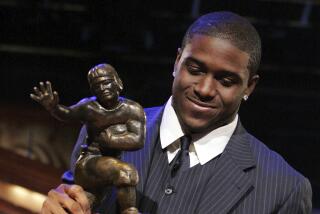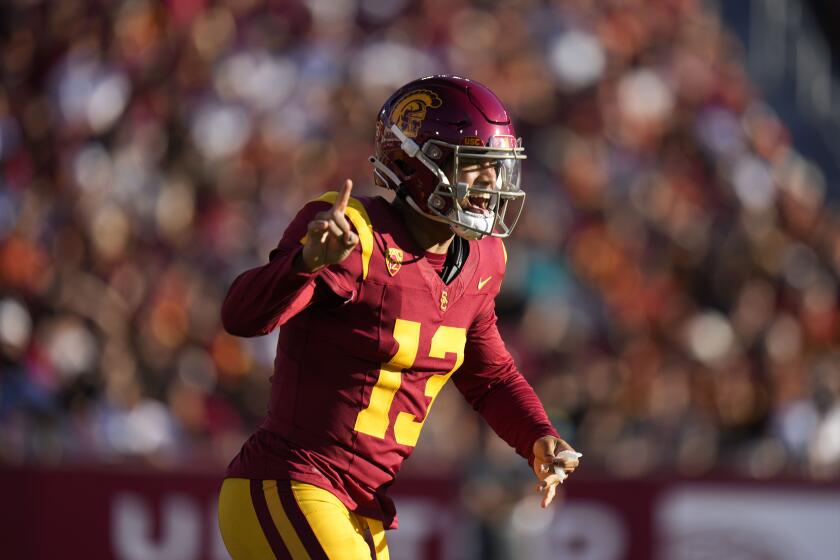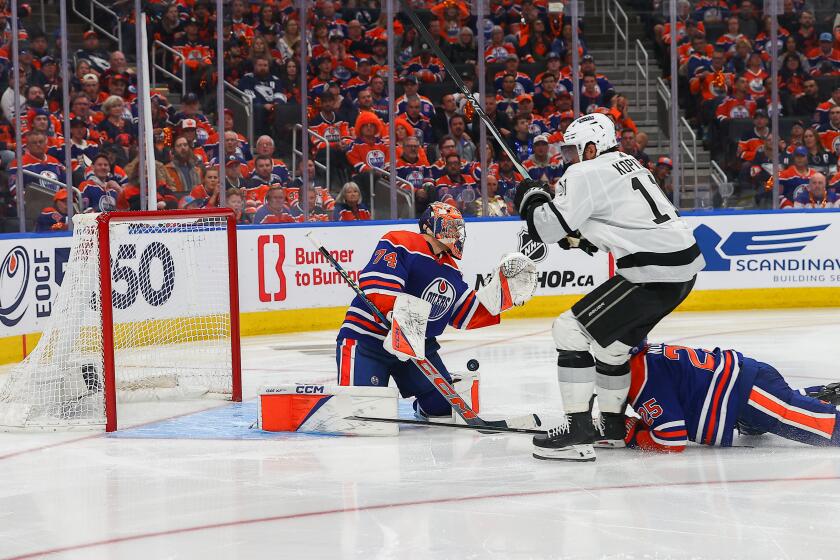English Gardner is going to be much more than a name that you can’t forget
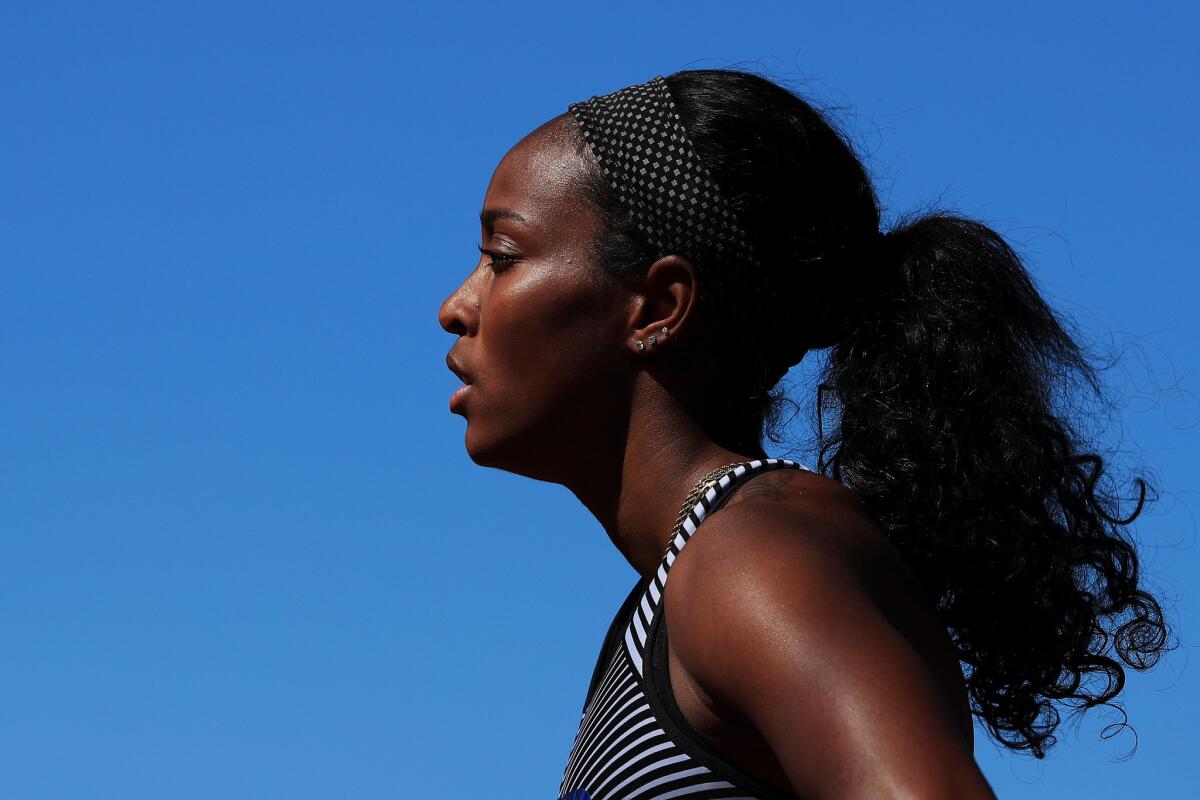
Monica and Anthony Gardner were sure their second child was destined to do great things, so they tried to think of a name that would stand out as much as she would.
“My mom wanted to create a name that sounded cool over an intercom and that was really hard to forget. She said, ‘Whatever my baby is going to be, it’s going to be something spectacular and my baby is going to be on some type of world stage,’” said that child, now 24. “Thus, English Gardner was born.”
The name is easy to remember. So is the person who bears it, winner of the 100-meter dash at the U.S. Olympic track and field trials in Eugene, Ore., with the second-fastest wind-legal time in the world this year, 10.74 seconds. Wind-legal times are times recorded when the wind is less than two meters per second, meaning the athlete hasn’t benefited from excessive aid. Only six other women have ever recorded faster wind-legal times.
As Monica Gardner intended, English Gardner’s name sounded majestic when she was announced as the winner, giving her a spot on the U.S. team for the Rio de Janeiro Games. “I like to give her credit every now and then,” said Gardner, a New Jersey native who trains in Los Angeles. “I always tell her, ‘You were nuts, Mom, but you were good and smart, crazy nuts.’”
With world-class times on her resume and an engaging personality that’s as big as her talent, Gardner has become a bright light in a sport beset by use of performance-enhancing drugs and she’s earning attention for more than her name.
After finishing the 100 just ahead of Tianna Bartoletta and Tori Bowie she pantomimed eating, a tribute to her coach, John Smith: She’d told him that if he set the table (i.e., prepared her well), she would feast. After proclaiming she’d “make it rain” with an exceptional performance at the trials, she thought she had succeeded — until her father ruled otherwise.
The gift that I had, I wasted. … I told her I wasn’t supposed to be in the Olympics but I was supposed to give you the genes.
— Anthony Gardner, father of U.S. sprinter English Gardner
“I was joking with my dad and said, ‘It rained.’ He looked over at me and said, ‘No, it drizzled,’” she said. “I’m going to look at film and see what I can fix and get ready for Rio.”
Her first love was basketball. But Anthony, a former football player who also competed in the long jump, triple jump and ran the hurdles in college, had noticed how fast she was and took her to the Willingboro (N.J.) track club, started by the parents of Olympian Carl Lewis. But she had more than pure speed.
“I didn’t have anyone to motivate me or help me understand what sports and my talent were all about. I just didn’t want it, but she does,” he said. “I use those things to motivate her because as good as I was, as I could have been, I never was. I told her I was a knucklehead. I wanted to do everything else but train. I wanted to do everything else but be productive.
“The gift that I had, I wasted. … I told her I wasn’t supposed to be in the Olympics but I was supposed to give you the genes.”
He and his wife also motivated their daughter in another fashion.
Monica Gardner was diagnosed with stage 3 breast cancer when English was a freshman in high school. While Monica was getting aggressive chemotherapy, Anthony developed stroke symptoms, including dangerously high blood pressure. They are fine now, but those were difficult times for the family.
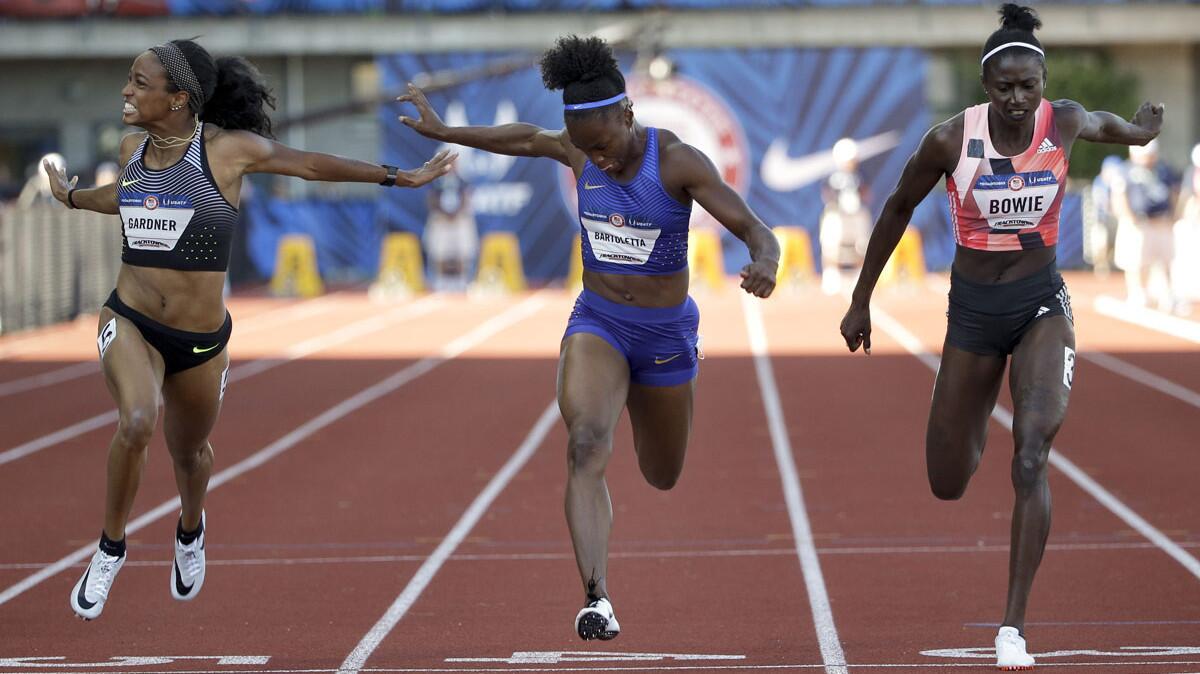
“I remember state championships that year, I was crying before the race because I didn’t want to run anymore. Why run? You have your mom literally dying in bed,” English said. “I remember days when she wouldn’t eat. She couldn’t sleep. She was in pain. I watched her literally deteriorate in front of me and I looked over in the stands and she was sitting there right with my dad. And I went out there and ran.”
The experience changed her. “She had to grow up fast,” Anthony Gardner said. “Our older son was in college and didn’t come home, and English had to be there to help her little brother and little sister get through everything, and perform on the track.”
Her career almost ended during a charity powder-puff football game during her junior year at Eastern High School in Vorhees, N.J. While running full speed to catch a touchdown pass, she tried a spin move. “My foot stayed in one position, my body kept twisting. I heard a loud pop,” she said. It was the sound of her right ACL, MCL and meniscus tearing, injuries that cost her nearly two years of high school competition as well as college scholarship offers.
She had wanted to go to Louisiana State University and had the school jacket before she visited, but Coach Dennis Shaver told her he couldn’t take a chance on her because of her knee surgery. Tearfully, she told him she understood and instead went to Oregon, where she was a five-time NCAA champion before she turned pro after her junior year. “To this day I make sure Coach Shaver knows, ‘Listen, you missed an opportunity of a lifetime because I would have been the best thing you ever had,’” she said, smiling.
Competing against a deep Olympic 100 field should be easy after all she has been through. She’s also likely to be part of the 400-meter relay.
“Our relay is going to be nasty. I promise you that,” she said in Eugene as she sat beside Bartoletta and Bowie, who were both timed in 10.78 seconds. “One thing I’d like to point out is that the three women you see up here, we’re not enemies. Off the track we still talk to each other. Off the track we’re rooting for the other one….The team aspect of the relay is going to be so much stronger than years before, I believe.”
Then they’d really make it rain.
Twitter: @helenenothelen
ALSO
Meet Landon Donovan, who could be U.S. soccer’s Jason Bourne
Putin blames ‘meddling’ politicians as list of banned Russian athletes exceeds 100
For Dodgers and Andrew Friedman, this is the time to step up, not stand pat
UPDATES:
6:16 a.m. July 28: This story has been updated.
This story was originally published at 2:50 p.m. July 27.
More to Read
Get our high school sports newsletter
Prep Rally is devoted to the SoCal high school sports experience, bringing you scores, stories and a behind-the-scenes look at what makes prep sports so popular.
You may occasionally receive promotional content from the Los Angeles Times.
